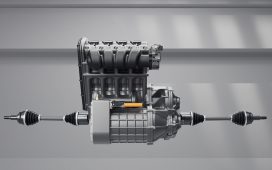Traveling through a Transportation Security Administration (TSA) security checkpoint with an infant, toddler or small child can go smoothly when travelers know what to expect and prepare in advance.
“If you’re traveling with your child, it helps to know what to expect before you get to the airport,” says Gerardo Spero, Transportation Security Administration (TSA) Federal Security Director for Philadelphia International Airport. “That’s why it’s valuable to become familiar with the security procedures for screening small children and the various paraphernalia that is needed for children during their trip. We have modified screening procedures for children who are 12-years-old and younger.”
Screening of infants/toddlers/children
- Parents/guardians should remove infants and children from strollers and car seats and carry them in their arms through the walk-through metal detector.
- Infants may be carried in a sling/carrier through the walk-through metal detector.
- Children will not be separated from their parent/guardian.
- Parents/guardians who are enrolled in TSA PreCheck® may bring their children with them through a TSA PreCheck® lane.
- Children 12 and under can leave their shoes, light jackets and headwear on during screening.
- Modified screening procedures are in place to reduce the likelihood of a pat-down on a child.
- Children under age 18 do not need to present ID at the travel document checking podium.
Traveling with liquid formula, breast milk, toddler drinks and baby/toddler food
- Formula, breast milk, toddler drinks, and baby/toddler food (to include puree pouches) in quantities greater than 3.4 ounces or 100 milliliters are allowed in carry-on baggage and do not need to fit within a quart-sized bag. These items are considered medically necessary liquids. This also applies to breast milk and formula cooling accessories, such as ice packs, freezer packs, and gel packs (regardless of presence of breast milk).
- A child or infant does not need to be present or traveling with an adult for a traveler to bring breast milk, formula and/or related supplies onto their flight.
- Parents/guardians should inform the TSA officer at the beginning of the screening process that they are carrying formula, breast milk, toddler drinks, and baby/toddler food (to include puree pouches) in excess of 3.4 ounces. These items should be removed from a carry-on bag to be screened separately from other belongings. It’s smart to pack all of these items together in one area of a carry-on bag so they are quickly divested. TSA officers may need to test liquids for explosives or any possible concealed prohibited items.
- Although not required, to expedite the screening process, it is recommended that formula and breast milk be transported in clear, translucent bottles and not in plastic bags or pouches. Liquids in plastic bags or pouches may not be able to be screened by bottle liquid scanner technology units, you may be asked to open them (if feasible) for alternate screening such as explosive trace detection and vapor analysis for the presence of liquid explosives. Screening will never include placing anything into the medically necessary liquid.
- Ice packs, freezer packs, frozen gel packs and other accessories required to cool formula, breast milk, toddler drinks, and baby/toddler–regardless of the presence of breast milk–are also allowed in carry-ons, along with liquid-filled teethers. If these items are partially frozen or slushy, they are subject to the same screening as described above.
Screening of children’s items
- Parents/guardians should place all carry-on baggage such as children’s toys, bags and blankets on the X-ray belt for screening.
- Strollers, umbrella-strollers, baby carriers, car and booster seats as well as backpacks must also be screened by X-ray.
- Parents/guardians should place items in the stroller pockets or baskets, in a carry-on bag or on the X-ray belt for screening.
- Equipment that does not fit through the X-ray machine will undergo a visual/physical inspection by TSA officers.
Screening children with medical conditions, disabilities or mobility aids
- Parents/guardians should inform the TSA officer if a child has a disability, medical condition or medical device, and advise the officer of the best way to relieve any concerns during the screening process.
- Parents/guardians should tell the TSA officer if a child is able to walk through the metal detector or needs to be carried through the metal detector by the parent/guardian. Parents/guardians may carry their child to ease the screening process. The TSA officer will not remove a child from his/her mobility aid, wheelchair or scooter.
- Request assistance. TSA Cares is a helpline to assist travelers with disabilities and medical conditions. Call TSA Cares 72 hours prior to traveling with questions about screening policies, procedures and what to expect at the security checkpoint. Parents/guardians may also call to request assistance at the checkpoint. Travelers requiring special accommodations or concerned about the security screening process at the airport may request assistance by contacting TSA Cares.
Airports across the United States support mothers who are breastfeeding. For example, Philadelphia International Airport has a variety of options for nursing a child or pumping breast milk in the airport. Four Mamava Suites are located post-security in Terminals A-West, between Terminals B and C, between Terminals D and E and Terminal F. Additionally, Minute Suites are located on the secure-side walkway between Terminals B and A-East. Traveling mothers also can take advantage of using one of the airport’s 42 companion care or family restrooms, which are equipped with electrical outlets and are located both pre-security and on the secure side of the TSA checkpoint throughout the airport, and PHL’s first built-in lactation suite in the B/C food court.









